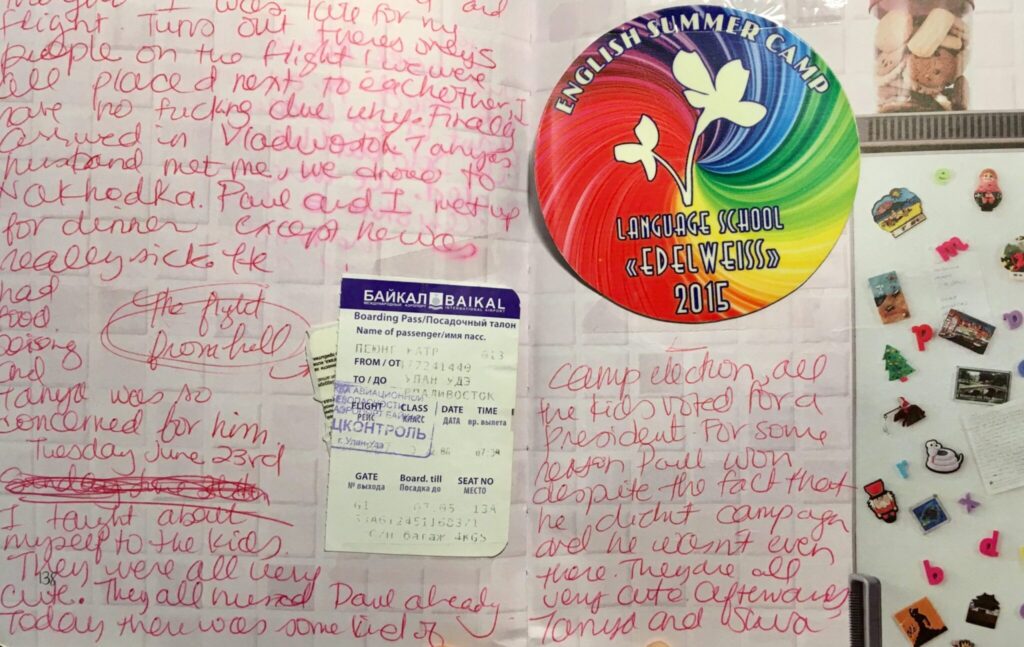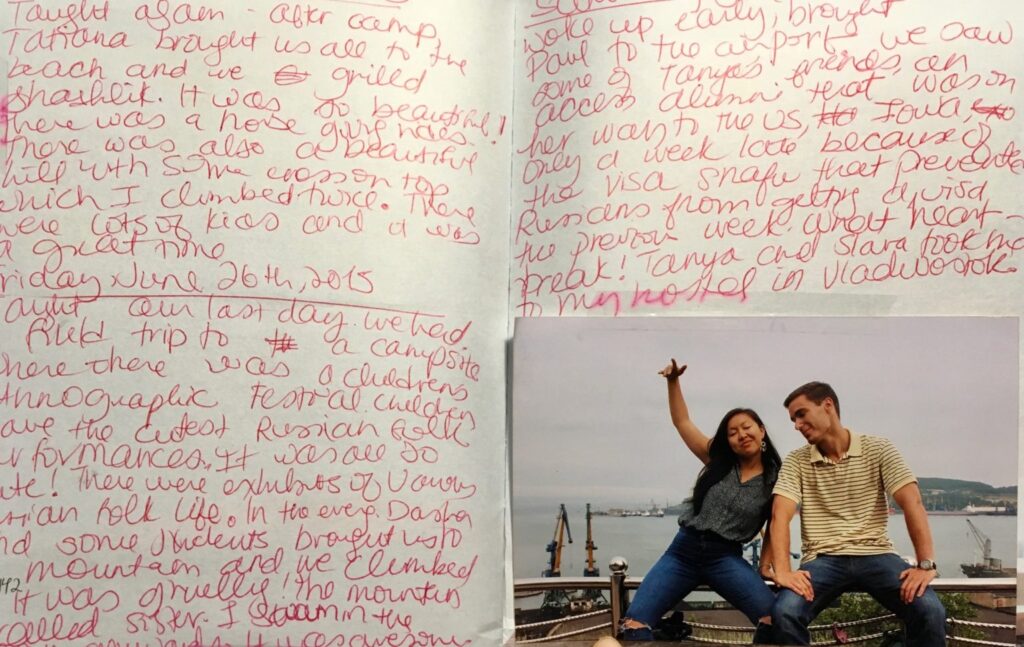I spent a whole year in Western Russia, in Samara working as a university lecturer. Samara is a mid-sized Russian city. I got to know every part of it, as I worked in a major university but also weekly taught at an elementary school, private language academy, and even a US Work and Travel preparation program. I even occasionally taught English at local bars and restaurants!
If I could describe Samara in one one word, I would say… dreary. Most people that I met there dream of leaving. And not in an aspirational sort of way. People in Samara feel left out of the narrative of what it means to be European and also Russian. Traveling to Europe is out of reach for most families, as strict visa regulations make Western European travel almost impossible and inflation is rampant across the entire country, making upward mobility only possible in large cities like Moscow and St. Petersburg. Another aspect to state-funded university is that a disproportionately large number of young people are university educated but it does not change their prospects for a higher-paying job.
Students that I interacted with were fascinated with life in America, as their media is saturated with American-made movies, music, and celebrities. As excited as I was to share about the nuances of life in the US, I was routinely astonished that they did not have much pride in their own city. They constantly talked of government corruption, as witnessed in Samara’s numerous construction and development problems. Their narrow focus on simply leaving Russia (at times, illegally) also left no room for optimism or empowerment to change their own communities. The rampant racism, sexism, homophobia, and financial problems didn’t help either. I was in a dreary place… filled with people who saw no hope that things could be better. But it’s hard for individuals to feel empowerment to change their city with so much corruption, it’s almost like people are afraid of getting power. Of course, I befriended a few people that showed me another side of Samara, but they were few and far in between. Another positive note is that since I left in 2015, I heard local development had picked up and there were arts programs and new events that were making life better in Samara.
After I finished teaching in Samara, I was able to backpack through Russia and visit other parts. I spent two weeks in the Republic of Tuva, Republic of Buryatia, Republic of Khahassia, and finally, Primorsky Krai. Primorsky Krai is Russia’s easternmost region, sharing a border with North Korea and just across the sea from Japan. It was a breath of fresh air from Samara, and the end of the time I spent in Russia. I spent about a week in both Nakhodka and Vladivostok.
Fun fact: Did you know that most of the world’s population of wild Siberian tigers are found in Primorsky Krai?

Nakhodka
Nakhodka was a picturesque city located on a peninsula, with narrow highways wrapping around coastal cliffs.
I got there on a plane from Ulan-Ude, with only five other passengers. As exciting as that was, the ride was turbulent.
I got to teach at a summer camp in Nakhodka. The camp is run by an enthusiastic, worldly teacher that made learning English come alive to the students and provided ample opportunity for international travel and cross-cultural exchanges. I was ecstatic to be a part of that camp! The high-school aged kids took me around to museums, ice cream spots (literally a national Russian pastime at this point), and even to the Church of the Kazan Icon of the Mother of God, an enormous church on a hill that provides the best view of the bay. We even went hiking on Sister Mountain, a rocky point with a steep climb.
The people I met, including the children, were so different from the Russians I had met in Samara. I think being next to the ocean, and left out of the stereotypical bears, vodka, and snow image of what it means to be Russian – made Nakhodka a fundamentally different place. Everyone recognized both the Russian and Asian influences on their hometown.

Vladivostok
After the camp ended, I spent a few days in Vladivostok. The Russian navy is stationed in Vladivostok, so there were hot guys everywhere! I was traveling solo, just trying to maximize my last few days before my visa permission ran out.
I had heard rumors that there was Indian food in a local mall. I had Indian food for the first time in one year! There was also bulk-candy there, something I hadn’t seen in a while. There were also Asian snacks, which I had never seen in Samara…
I stayed in a crazy hostel with some interesting characters. The hostel ended up shutting down just weeks later. On a rainy day, I rode the bus to a beach. More than anything, it was time to reflect and say good-bye to my year in Russia. It was an exhilarating chapter of my life.
